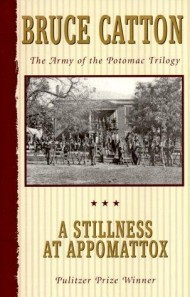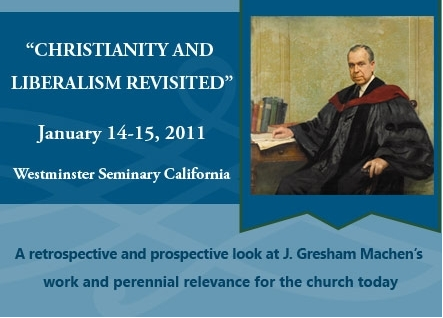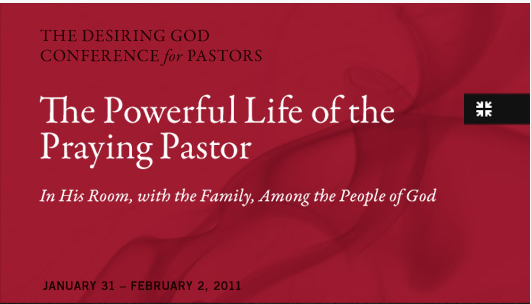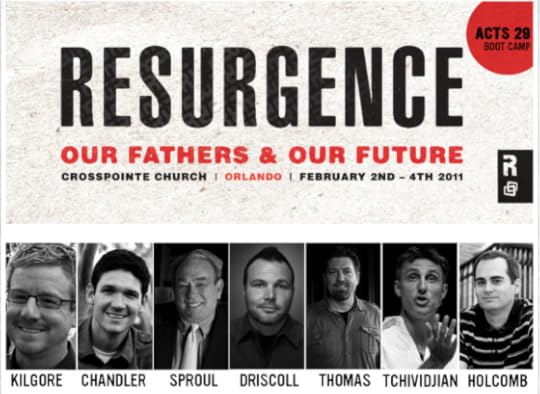Justin Taylor's Blog, page 372
January 4, 2011
Accessing the ESV for Free: Digital and Audio
From the Crossway blog:
When we released the English Standard Version of the Bible in 2001, we immediately made it available online, for free. Eager to get the Bible into as many formats as people will read, we've released the ESV as an iPhone/iPad app, Android app, and as an eBook for your Kindle or Nook.
Prefer to listen to Scripture? You can stream it at ESV Online. We've worked with our friends at Faith Comes By Hearing to offer several audio versions of the Bible, for free. Another set of audio files is available on YouTube.
For our technologically savvy friends, we've even made the API to our ESV Bible text and ESV audio available free of charge for non-commercial use.
"And Their Eyes Were Opened, and They Knew": Genesis 3:7 and Luke 24:31

In the latest issue of JETS (December 2010) Dane Ortlund has an article entitlted "'And Their Eyes Were Opened, and They Knew': An Inter-canonical Note on Luke 24:31″ (pp. 717-728). [Not available online.]
Here's an overview:
The purpose of this article is to suggest that Luke 24:31 alludes to Genesis 3:7 in the shared statement "and their eyes were opened, and they knew." When Adam and Eve were offered food by the serpent and ate, their eyes were opened and they knew good and evil. When the two disciples on the Emmaus road were offered food by the risen Jesus and ate, their eyes too were opened and they knew who their traveling companion was, that he had been raised, and that he was the focal point of all the Scriptures.
This essay proceeds in three basic steps. We first note the scarcity in the relevant literature of those who raise the possibility of this intercanonical connection. Second, we identify three scholars who do link Luke 24:31 back to Genesis 3, though each only briefly. Third, we provide four factors that cumulatively suggest an allusion to Gen 3:7 in Luke 24:31.
Ortlund's arguments are categorized as (1) linguistic; (2) narratival; (3) interpretive; and (4) redemptive-historical. I found the section on narratival parallels especially interesting, as he identifies common features of both narratives:
two human beings are involved/addressed (Gen 3:6; Luke 24:13)
the human pair is offered food (Gen 3:1–5; Luke 24:30)
the one offering the food is a supernatural being (note Rev 12:9 and 20:2 in light of Gen 3:1–15; Luke 24:52)
the food is offered in an unexpected way: in Genesis 3 it was not the serpent's prerogative to play the "host" by subversively mediating the fruit to Adam and Eve, and in Luke 24:30 Jesus assumes the role of "host" despite clearly being, up till that point, the guest (note v. 29)
the food is accepted (Gen 3:6; Luke 24:30b–31a)
the human pair does not recognize the one offering food for who they really are (Gen 3:1–7; Luke 24:16)
the eating of the food results in a profound new perception of spiritual reality (Gen 3:7–10; Luke 24:32)
this new understanding is described with the phrase "and their eyes were opened, and they knew" (Gen 3:7; Luke 24:31; see above)
the human pair now understands retrospectively something God had already told them: Adam and Eve now truly understand what God meant when he said that they would know good and evil, and Cleopas and his companion now truly understand what Jesus meant when he had opened the Scriptures to them on the road (Gen 3:7b; Luke 24:32)
the human pair is physically separated from God in the immediate wake of taking the offered food: in Genesis 3, Adam and Eve try to hide from God (v. 8); in Luke 24, Jesus promptly "vanished from their sight" (v. 32)
God comes and is present among his people in the wake of the eye-opening, frightens them, and asks a series of questions (Gen 3:9–13; Luke 24:36–41)
the human pair immediately physically relocates, Adam and Eve leaving the place of God's special residence (Eden), Cleopas and companion returning to the place of God's special residence (Jerusalem ) (Gen 3:23; Luke 24:33)
Adoption Waiting Lists in the United States?
A reader writes to Andrew Sullivan:
I'm flabbergasted by your quote of Ross [Douthat] stating that "would-be adoptive parents face a waiting list that has lengthened beyond reason." They do not. I've adopted two children, and the waiting list is not long. It doesn't even exist: there are 500,000 children in foster care in the US, and 100,000 of those are available for adoption today.
Well, ok, but you want an infant? No problem: less than a month after we adopted our first child, our agency called us asking if we knew anyone at all with a completed home study. They had a healthy baby boy in a hospital and nobody willing to adopt him. (Agency rules didn't allow us to take him before our first was completed) For our second, the agency tried for days to contact us around Christmas since we were the only people on the list who were willing to take him.
Why was it so hard to place them? Simple: the adoption market is built around healthy white infants. If you're willing to remove even *one* of those conditions, the waiting list is short to non-existent.
There's no shortage of children to adopt; the waiting list exists solely because adoptive parents want to wait for the "right" kind of child. Please don't perpetuate the myth.
Conferences Worth Noting
Here are a few upcoming conferences (in chronological order) that you may not have heard of yet but are worth checking into, depending on your location and availability:
Christianity and Liberalism Revisited
January 14-15, 2011
Escondido, CA
Speakers: Michael Horton, Robert Godfrey, D.G. Hart, Joel Kim, J.V. Fesko, David VanDrunen
The Gospel Centered Life
January 21-23, 2011
Coral Ridge Presbyterian Church (Ft. Lauderdale, FL)
Speakers: Michael Horton, J.D. Greear, Tullian Tchividjian
(Note the price is only $30.)
The Powerful Life of the Praying Pastor: In His Room, with the Family, Among the People of God
January 31-February 2, 2011
Minneapolis Convention Center
Speakers: Joel Beeke, Francis Chan, Paul Miller, Jerry Rankin, John Piper
Resurgence: Our Fathers and Our Future
February 2-4, 2011
Orlando, FL
Light and Heat: A Passion for the Holiness of God (Ligonier Ministries 2011 National Conference)
March 24-26, 2011
Orlando, FL
Speakers: John Piper, Sinclair Ferguson, Robert Godfrey, Steven Lawson, R.C. Sproul Jr. and R.C. Sproul
Plant!
March 24-26, 2011
Covenant Fellowship Church (Glen Mills, PA)
Speakers: Mark Dever, C.J. Mahaney, Darin Patrick, Dave Harvey
Breakout speakers: Tim Witmer, Pete Greasley, Craig Cabaniss, Mike McKinley, Daniel Montgomery, Shai Linne (+ concert)
Next 2011
May 28-31, 2011
Orlando
Speakers: D.A. Carson, R.C. Sproul, Kevin DeYoung, Jeff Purswell, Scott Oliphint
Breakout speakers: Vern Poythress, Nathan Sasser, Peter Williams, Kevin DeYoung
January 3, 2011
Ten Most Significant Cultural Trends of the Last Decade
Andy Crouch: "Here are ten significant trends in North American culture that accelerated dramatically in the 2000s—almost always for better and for worse at the same time."
Connection
Place
Cities
The End of the Majority
Polarity
The Self Shot
Pornography
Informality
Liquidity
Complexity
Read his analysis of each trend here.
HT: Trevin Wax
New Executive Director at Desiring God
Congratulations to Scott Anderson as he becomes the new director at Desiring God and Jon Bloom concentrates on his other two roles as President of DG and Chairman of the Board.
God Rest Ye
Here's some helpful counsel from Thabiti Anyabwile on resting well. He offers four pieces of counsel: (1) rest before you are tired; (2) rest at regular intervals; (3) rest weekly; (4) rest daily.
The Paradox of America's Unborn
The conclusion to Ross Douthat's latest NYT op-ed on the unborn in America:
No life is so desperately sought after, so hungrily desired, so carefully nurtured.
And yet no life is so legally unprotected, and so frequently destroyed.
Is There a Plausible Defense for Gay Civil Marriage?
Robert P. George, Ryan T. Anderson and Sherif Girgis continue to answer objections to their substantial piece, "What Is Marriage?" published in the Harvard Journal of Law and Public Policy.
George, Anderson, and Girgis strongly believe that there is no plausible defense for gay civil marriage and that these prominent critics have not landed any blows, hence their rapid-response to all of these prominent critiques.
Here are the reviews and responses thus far, in chronological order. They think the latest exchange may be the most important:
"The Argument Against Gay Marriage: And Why It Doesn't Fail" (first response to Professor Yoshino)
"Marriage: Merely a Social Construct?" (Response to Northwestern Law Professor Andy Koppelman)
"Marriage: Real Bodily Union" (Response to Family Scholars blogger Barry Deutsch)
"Marriage: No Avoiding the Central Question" (Response to second Yoshino piece)
The Best Book Ever Written on the Civil War?
 Any list of top Civil War books is bound to be subjective—there are 60,000 and counting—but Civil War historian Glenn LaFantasie offers his top 12 choices.
Any list of top Civil War books is bound to be subjective—there are 60,000 and counting—but Civil War historian Glenn LaFantasie offers his top 12 choices.
In his opinion, the best book ever written on the Civil War is by Pulitzer Prize winner Bruce Catton: A Stillness at Appomattox.
My top choice did win a Pulitzer for its author, Bruce Catton. For those who aren't familiar with his works, which are plentiful, he was probably the 20th century's foremost American writer of narrative histories, most of which were about the Civil War. Published in 1953, A Stillness at Appomattox details the experiences of the Army of the Potomac during the final year of the war, but it is much more than a retelling of an often told tale. In fact, one could say this book is a prose poem to the Army of the Potomac and the men who fought in it. As a child growing up in Michigan, Catton knew and spoke to Civil War veterans in his small hometown. Although a good part of his career was spent as a newspaper journalist and columnist, he took up writing Civil War books in the 1950s, became the senior editor of American Heritage magazine, and gained great fame as an author until his death in 1978. Catton wrote not only with a journalist's eye, but also with a novelist's sensibilities (although he only ever published one novel on the Civil War for juvenile readers). Today his name—and the quality of his work—is largely forgotten, although Civil War historians and enthusiasts still heap high praise on him for his long list of highly satisfying Civil War books and biographies. A Stillness at Appomattox stands out from all the rest of his writings. As this fine book reveals so expressively, Catton forged a trail for later Civil War historians by writing his account of the Army of the Potomac from the point of view of soldiers in the ranks. By means of lilting sentences, adroit portraits of men and their peccadilloes, and iron-hard descriptions of men in battle, Catton turns the Army of the Potomac into more than a mass of men in wartime; his picture of the army and its soldiers convinces you that he was there with them, which of course he wasn't, but you feel that anyway because his narrative carries you back into the world in which those soldiers lived and died. Beneath the surface of Catton's chronicle runs the awful specter of the tolls of war—how war dehumanizes, stultifies, and yet breeds camaraderie, trust and even love among those who wage it. Long before academic historians turned to highlighting the "face of battle" in their military studies of the Civil War, Catton sketched accurately and effectively the dour features of that face. More to his credit, Catton discussed—in this book and in others—how slavery was the cause of the war, the plight of slaves and freedmen as the war wore on, and the importance of the Union cause as a driving force behind the determination of Northern soldiers to win the war and reunite the country. This book leaves sharp images lingering in the reader's mind, largely because Catton expertly sets scenes, describes people in human terms, and refuses to disguise the ugly, malevolent and heartless aspects of war. Yet, in the end, the book is surprisingly uplifting, a splendid tale of victory, no doubt because Catton so adeptly uses irony and compassion to tell the Army of the Potomac's story. Walt Whitman once famously said, "the real war will never get in the books." He was wrong. The real war, in all its dimensions, can be luminously found in this, the best book ever written about the Civil War.
HT: Joe Carter
Justin Taylor's Blog
- Justin Taylor's profile
- 44 followers
















